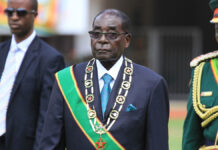By Mike Conradi, Partner, DLA Piper London
The Communications Service Proclamation, which was adopted by the Ethiopian Parliament recently, introduces a number of major changes into the Ethiopian telecom sector. A brief explanation of the major changes is provided below together with some commentary from DLA Piper’s telecoms team.
Note that this is not a legal opinion and it is based on the draft of the Proclamation – the official version is not yet published.

Summary of the Proclamation
1. The most important aspect of the Proclamation is that it has liberalized the sector, which has been monopolized by the government for many decades. Its relevant part (Article 54) states that the telecom sector should be “open without limitation to private investors including both domestic investors and foreign investors”. Therefore, foreign companies can now engage in the provision of telecom services in Ethiopia.
2. The Proclamation establishes a new and an independent government body known as the “Ethiopian Communications Authority”. This body, as per the Proclamation, is the principal regulatory body for the telecom sector in Ethiopia. It is mandated, among other things, to license and supervise telecom services providers, to regulate tariffs and to specify technical standards in the sector. As a result of the establishment of the Authority, the role of the Ministry of Innovation and Technology, which is currently the main regulatory body of the telecom sector, is generally limited to formulating national policies for the sector and liaising with the Authority to facilitate the exercise of proper regulatory powers on actors in the communications sector.
3. As corollary to the liberalization of the sector, the Proclamation also incorporates rules for preventing and controlling anti-competitive acts in the telecom market. For instance, it prohibits telecom operators from engaging in acts of abuse of significant market power (Article 47) and empowers the Authority to enforce the Ethiopian competition law on the participants of the sector.
4. The Proclamation also contains other rules on economic regulations of the sector. It, for instance, stipulates the requirements for entering into interconnection agreements between telecom operators (Article 41) and grants the Authority the power to intervene in such agreements for ensuring the compliance of the agreements with the Proclamation.
5. Additionally, it empowers the Authority to issue directives, including on matters of consumer protection, for the proper implementation of the Proclamation. With respect to consumer protection (Article 49), the Proclamation authorizes the Authority to require telecom operators to issue codes of conduct for protecting the interests of their consumers. The Proclamation also has mandated the Council of Ministers (the federal executive branch) to issue detailed regulations for facilitating the enforcement of the Proclamation.
Commentary
This new Proclamation will be a critical piece of legislation for the success of Ethiopia’s (announced) plans to privatise Ethio Telecom, which is currently the monopoly telecoms provider in the country, and to introduce competition by issuing new licences. Any potential investor (whether in Ethio Telecom or in any new licensee) will want to understand its provisions and the extent to which it meets international best practice standards.
With that in mind we have a number of comments about the Proclamation in its current form. We discuss some of these below:
- The Proclamation contains a key concept, “Significant Market Power” (SMP), which is borrowed from EU law. Under EU law however an operator has SMP in respect of a particular aspect of the telecoms sector only (eg the market for wholesale broadband access) rather than the entire sector, and then only after the regulator has conducted a “market review” of that aspect and determined that the operator concerned has market power. Following a designation of SMP, under EU law, the regulator must impose remedies (ie regulations) on the SMP operator which are designed to mitigate that market power. The Proclamation, by contrast, contains none of these elements. This means that critical elements of the law are left to be set out in “regulations” issued by the council of ministers, or in “directives” issued by the Authority itself. These are important because whilst, of course, it will be Ethio Telecom that has SMP if anybody does, this means the question of whether, when and how SMP status might be removed from aspects of the market following the introduction of competition is currently unclear, as it the process for applying or modifying regulations on the SMP operator. It will be very important for any potential investor into the sector to get more clarity on these things.
- SMP operators are required to “share passive and active infrastructure”. It is not clear what this means and there are very few provisions detailing a process by which the SMP operator would be required to offer wholesale services to its competitors. Article 42, on interconnection, touches on this but this simply says that the Authority can determine disputes and it does not expressly require SMP operators to offer access on fair, reasonable and non-discriminatory (or FRAND) terms. It would be preferable to give the Authority, as part of a market review, the power to require the provision of wholesale service, on set (FRAND) terms and prices. Without this new entrants will have to wait until a dispute has arisen before being able to get the Authority to intervene.
- Under EU law the concept of SMP is restricted to ex ante regulation – ie applying regulations to specific operators simply because of (and intended to mitigate) their market power, not because of anything unlawful about their actions. Under the Proclamation however “abuse of significant market power” is prohibited. This confuses the concept with the ex post principles of competition law (under which consequences arise because of unlawful actions taken). One difficulty with this, aside from the confusion it could create, is that it might allow a loophole in respect of abusive conduct which would be prohibited under ex post competition law principles, but which would not be unlawful under the Proclamation unless a formal SMP designation had been given first.
- The Communications Authority is “accountable to the Prime Minister”, who can appoint the board and designate the chairman. Its budget will be allocated to it by the government (though it can also charge fees for services). These provisions call into question whether it will be able in practice to operate independently from the government, or whether it will be susceptible to political pressure. The government will, after all, have a conflict of interest if it retains a stake in Ethio Telecom after any privatisation process.
- The Authority is obliged to set fees for the use of spectrum (Article 25) in such a way as to “recover a measure of the economic value” from licence holders. Nothing, though, is stated about how long spectrum use rights will last, how the Authority will determine the “economic value” or which “measure” it will “recover”. It would be preferably to state a clear process, with an auction being perhaps the most transparent and fair way to allocate spectrum. Again these important elements will, presumably, come in “regulations” or “directives” to be issued later – potential investors will certainly need to see and understand these.
- Operators are not given a clear right to access third party or state land in order to build or maintain new network infrastructure without an express agreement from the owner. Existing infrastructure, though, is grandfathered-in even without an express agreement (Article 31.7). This gives Ethio Telecom a clear, and arguably unfair, advantage over new operators when it comes to its network infrastructure. It would be better to give all operators reasonable (defined and specified) rights over third party land.
- The Authority can issue “class” or “individual” licences but no guidance is given on when either of these would apply and the implication of “individual” licences may be that different operators will be obliged to comply with different licence conditions. Licence conditions in an “individual” licence seem likely to be the legal mechanism through which specific conditions that aim to mitigate the market power of an SMP operator are introduced, but this means they may be too rigid – without regular market reviews and reviews of SMP conditions it seems likely that these ex-ante conditions may be applied for long after they are no longer appropriate.











